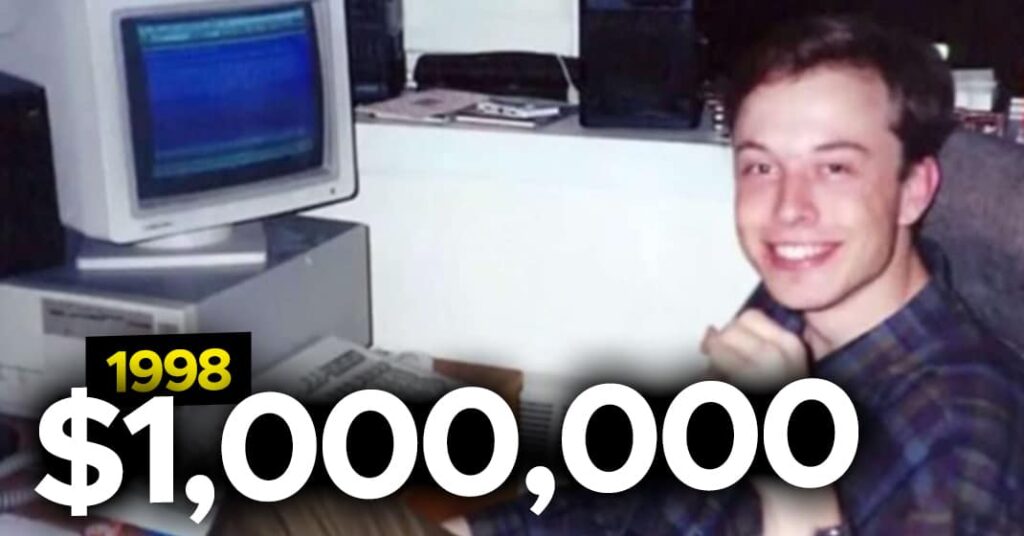It’s no secret that Elon Musk is now one of the wealthiest individuals on the planet, with Tesla, SpaceX, and a string of ambitious ventures under his belt. But before he became a household name and a Twitter provocateur, Musk was a young entrepreneur hustling his way to his first million. So, how did Elon Musk make his first million? The answer involves a mix of code, risk-taking, and a relentless work ethic that has become his signature.
From College Dropout to Startup Visionary
Born in Pretoria, South Africa, Musk had an early fascination with technology and business. After moving to the U.S. to attend the University of Pennsylvania, he quickly recognized that the internet was a gold rush waiting to happen. Instead of pursuing a PhD at Stanford, he took the road less traveled—dropping out after just two days to launch his first company.
Zip2: The Digital Yellow Pages Before Google Maps
In 1995, Musk co-founded Zip2, a company that aimed to revolutionize the way businesses reached customers. Think of it as an early version of Google Maps meets Yelp, designed to provide online business directories for newspapers. At a time when the internet was still a Wild West of possibilities, Musk and his brother Kimbal Musk worked tirelessly, sometimes sleeping in their office to save money on rent.
Their big break came when Zip2 secured contracts with major newspapers like The New York Times and The Chicago Tribune. With venture capital backing, the company grew rapidly. In 1999, Compaq acquired Zip2 for a staggering $307 million, netting Musk a $22 million payday at the age of 27. His first million? He had blown past that milestone with plenty to spare.
X.com and the Birth of Online Payments
Rather than bask in his newfound wealth, Musk doubled down on his vision for the future. That same year, he launched X.com, an online banking company that would later evolve into PayPal. At a time when most people still hesitated to trust the internet with their credit card details, Musk saw an opportunity. His gamble paid off—after merging with Confinity (which had developed PayPal), the company became a dominant force in online transactions.
When eBay acquired PayPal in 2002 for $1.5 billion, Musk walked away with $180 million. That sale set the stage for his next ventures—SpaceX, Tesla, and a series of high-stakes plays that reshaped multiple industries.
What Can We Learn From Musk’s First Million?
Elon Musk’s early success wasn’t a fluke. Here’s what aspiring entrepreneurs can take away from his first major business wins:
- Identify emerging trends early – Musk bet big on the internet in the ’90s before most people even understood its potential.
- Work ethic matters – Sleeping in the office, reinvesting profits, and taking calculated risks were all part of his strategy.
- Reinvest, don’t rest – Rather than retire comfortably after Zip2, Musk funneled his earnings into his next venture, proving that fortune favors those willing to keep pushing forward.
The Bottom Line
“Elon Musk early business” might not have been glamorous—there were sleepless nights, rejections, and plenty of risk. But those first million dollars were just a stepping stone to the empire he would later build. Today, Musk is a billionaire shaping industries that range from electric cars to space travel. Yet, the lessons from his first million remain just as relevant as ever: spot opportunities, work relentlessly, and never settle for small wins when you can change the world.






